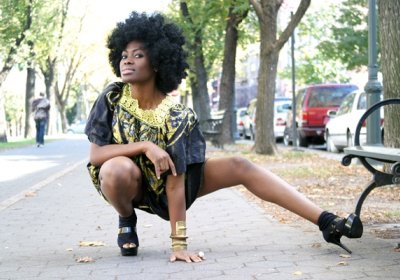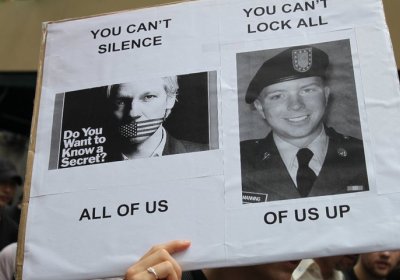Kelly Ryan
“People say to me, ‘You’re still talking about politics?’ and I say, ‘C’mon, life is politics’”, Afro-fusion singer-songwriter Wunmi told Green Left Weekly while she was in Sydney as part of the Big Day Out (BDO) music festival.
Tens of thousands of people took to the streets of Egypt on January 25 to demonstrate their opposition to the regime of President Hosni Mubarak. Inspired by the revolution in nearby Tunisia that has overthrown the Ben Ali dictatorship, activists called demonstrations labled a "Day of Wrath" across Egypt.
Time magazine chose to crown Facebook creator Mark Zuckerberg as its Person of the Year for 2010. But for so many people, it was Julian Assange, who won the popular vote, who was more definitive of the year that was.
Supporters of whistleblowing website Wikileaks rallied in Sydney, Melbourne and Adelaide on December 14, as Wikileaks editor-in chief Julian Assange faced a bail hearing at Westminster magistrates court in London that day. Protesters opposed attempts by governments and corporations to shut down and harrass the site. About 800 people gathered in Sydney to call for Assange to be granted a fair trial and to defend Wikileaks. About 1000 marched in Melbourne and 300 in Adelaide.
More than 1000 people rallied at Sydney’s Town Hall at 1pm on December 10 to show their support for Wikileaks and its founder Julian Assange. Rallies also occurred in Brisbane, Melbourne, Hobart, Adelaide and Perth.
- Previous page
- Page 4
- Next page










